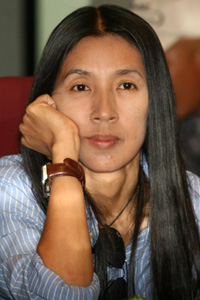The post-coup era has brought a new challenge to the military - how to step up its work in connection with the protection of the monarchy.
In 2006, coup makers cited the threat to the higher institution as a cause to justify their putsch, aiming their sights at then prime minister Thaksin Shinawatra and his close aides.
Since then the military has been intensifying its operations in response to the red-shirt movement and the pro-Thaksin and anti-coup groups.
Such activity has given the impression of a connection between the higher institution and the coup makers while red-shirt people have been branded as ''non-royalists''.
At the time of the coup, anti-monarchy websites were mushrooming. Gen Surayud Chulanont had resigned from his position as privy councillor to become premier and the coup makers had proposed he set up a special unit, Task Force 6080 to deal with the website problem.
Its role is to monitor websites for content deemed offensive to the monarchy.
The task force was later transferred from Government House to the Internal Security Operation Command (Isoc) under prime minister Samak Sundaravej.
The unit became an arm of Isoc's Operational Coordination Centre No. 6.
With an annual budget of 200-300 million baht, the unit's main responsibility is to protect the higher institution.
The task force has subsequently given assignments to other units in the armed forces, with the army as the main arm. The task force has also opened a channel for the public to report websites that publish anti-monarchy content.
It then notifies the ICT Ministry which has the authority to close down these websites.
Each month the army posts online the number of closed websites in connection with lese majeste content.
In recent years, the army has recruited officers with computer skills to work in this unit.
The main responsibility of these officers, dubbed ''cyber warriors'', is to monitor websites and also to post comments and sometimes to counter allegations against the monarchy on webboards or even Facebook pages.
''Those who work in this unit must have a passion for internet surfing,'' said a source.
''Commanding officers will handpick these 'warriors'.'' Some of them are conscripted soldiers.
However, the main problem is that many of these anti-monarchy websites are registered abroad. Therefore, the ICT Ministry can't do anything.''
There has been growing demand for ''cyber warriors'' in the army to better cope with the anti-monarchy websites which appear to be increasing rapidly.
These cyber warriors have to keep their identities secret. They also have to sharpen their computer skills for the demanding tasks that come with the cyber age.
Apart from monitoring the anti-monarchy movement, they also handle issues that may affect national security as the military is facing news challenges in the cyber age.
Wassana Nanuam is a senior news reporter covering military affairs for the Bangkok Post.
